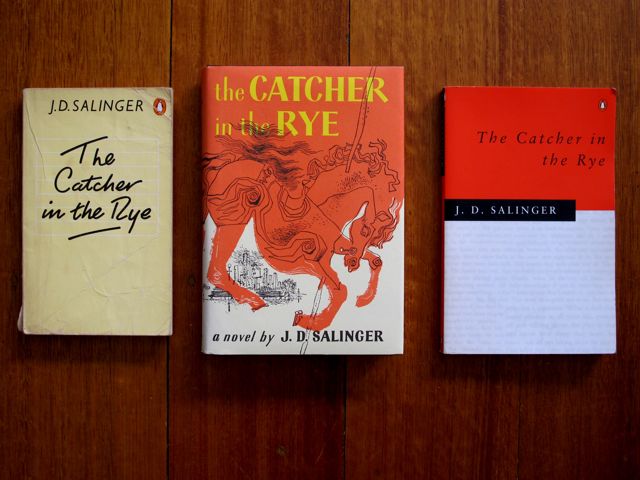The Catcher in the Eighth Grade
by Avery Brooks
As people get older they are hardened to art. It becomes more and more difficult for a film, a song, or a piece of writing to move one in the way that it might have at a younger age. This is the natural way of things; as a person gains more life experience it is only natural that they might not have the same raw emotional reaction to a piece of work that once might have moved them. Intellectually they can appreciate it, but it does not work on their heart the same way it once did. Looking back at J.D. Salinger’s The Catcher in the Rye, it is difficult for me to remember exactly why I found it as moving as I did when I was a precocious eighth grader. Now that I am older I relate to Holden Caulfield’s monologues less, and am more inclined to read the book as an examination of a depressive teenager’s thoughts on the world, rather than a full throated endorsement of them. But this was not the case when I first encountered the work. Upon a first reading I took each of Holden’s screeds against supposed ‘phoniness’ as my own, and looking back I wonder if they informed my way of seeing the world, rather than vice versa.
There are a few books that I would say have distinctly informed my personality, and for better or worse, Catcher certainly ranks near the top of that list. In the Eighth grade I was confused by everything. Kids my age were weird and nonsensical, teachers and parents disregarded my opinions, and my burgeoning sexuality layered every interaction with a patina of dread which had previously not been there. I sulked in my room. I watched too much TV, went on the internet too much, looking for identities to glom onto. If I didn’t know who I was yet, then surely I could fashion a makeshift personality in the meantime until my own came into fruition. In other words it was the perfect time to read J.D. Salinger’s infamous novel. There was an old red copy laying around my house, and for a week or two I took every opportunity to hide in a corner somewhere, and dive into Holden’s experiences walking around New York City for a few days. In some ways it was a story I envied: this kid gets to lurk around New York on his own, while I can only stay in Birmingham, Alabama and have to be driven everywhere by my parents. In other ways, I recognized the inherent sadness of Holden’s life, and did not envy his post-traumatic stress, or his grief on the death of his brother. But a part of me wished that I could give my own angst such concrete meaning. Nothing terrible happened to me at this time, and I thus had nothing to assign my anger to. Is this a deeply privileged position? Of course, but it was also mine.
Part of my attachment to the work came from the fact that I had really never read a book like this before. Everything up to then had been marketed at young kids or teenagers, with very few hard edges. I enjoyed Harry Potter, Percy Jackson, and even Star Wars tie-in books. Catcher was probably the first book I had ever read which contained no fantasy elements, no spaceships or dragons. It amazed me that a book that focused only on the interior life of one character could keep me invested as it did. It also gave me a smug sense of superiority towards my peers. Yes, I recognized that the ducks were a metaphor; I understood that Holden’s journey mirrored Salinger’s sense of displacement in returning to America after World War Two; I read serious literature now. As years went by I came to understand many of the flaws in a book I still treasured. I realized that Holden was never meant to be emulated. A sense of embarrassment crept in with relation to the book I had once proudly declared my favorite of all time. From a more distant vantage point I feel that this shame was unnecessary, and I recognize that the book helped me in a difficult time in my own life. Even though my relationship towards it has changed, I still value what it gave me. A confidant, a friend, and a cautionary tale: Holden Caulfield has meant many things to me, and to generations of readers, and I no longer think that’s anything to be ashamed of.

